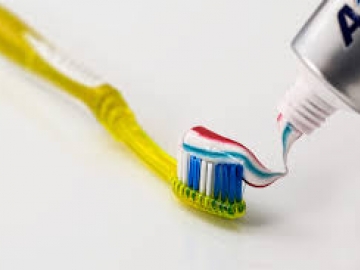Adult
- About
- Meet The Team
- Conditions
- Patient Feedback
- Making the most of your clinic appointment
- Your Appointment in Outpatients
- Easy Read Guide for Out Patients
- Cardiac Catheter
- Transoesophageal Echocardiogram
- MRI
- Surgery & "Top Tips" for coming into hospital
- Lifestyle Advice
- Exercise
- Heart Failure
- End of Life and Palliative Care
- Looking after your oral health
- Dentists Information Section: Dental care in adults at risk of Infective Endocarditis
- Yorkshire Regional Genetic Service
- Support
- Video Diaries
- Second Opinion
- Monitoring Results at Leeds Infirmary
- Professionals
Dentists Information Section: Dental care in adults at risk of Infective Endocarditis
-

What is infective endocarditis?
• Endocarditis is a rare infection of the inside of the heart or the main arteries.
• It most commonly affects one or more of the heart valves but may also occur around holes between the heart chambers, at the site of abnormalities in the walls of arteries or at the site of previous heart or arterial surgery.
• It is a serious condition and can cause major damage to the heart valves and may even cause stroke or death.
• Most endocarditis occurs in patients already known to have heart abnormalities.
• Many patients with congenital heart disease are at increased risk of getting endocarditis. The exceptions being isolated atrial septal defects or patients who have had completely curative treatment. Some lesions are thought to present higher risk than others; these include mechanical heart valve replacements, or certain types of shunts.How can I recognise infective endocarditis?
• Patients with endocarditis develop a temperature and feel generally unwell, with symptoms very similar to having the flu.
• Flu is very common and usually resolves after about a week.
• Flu like symptoms with a temperature which persist for longer than a week with no identified cause should be reported to the individual’s cardiologist, not just to their GP, so that specialist tests can be carried out to check for endocarditis.How often should I see patients at risk of infective endocarditis?
Adults at risk of infective endocarditis should have an appropriate dental recall interval set by their dentist according to their medical risk status as well as their overall oral health in accordance with NICE Recall Guidance.
What modes of care can I employ for dental care in adults at risk of infective endocarditis?
The safest way for any dental care to be carried out is generally using local anaesthetic. Sometimes sedation can also be used to help patients have dental care completed. If dental care cannot be carried out with the patients awake, then a general anaesthetic will be necessary.
For a small number of patients, treatment under local anaesthetic in a primary care setting may not be appropriate e.g. long QT syndrome, and advice from the patient’s cardiologist should be sought in the first instance.Should antibiotic prophylaxis be given prior to dental care in adults at risk of infective endocarditis?
The National Institute for Health and Care Excellence NICE guidance on antimicrobial prophylaxis against infective endocarditis in adults and children undergoing interventional procedures was updated in 2016. This guidance advised that antibiotic prophylaxis is not routinely recommended for individuals at risk of infective endocarditis who are undergoing dental procedures.
The Scottish Dental Effectiveness Programme (SDCEP) has produced a supporting document around the implementation of the NICE guidance (http://www.sdcep.org.uk/published-guidance/antibiotic-prophylaxis/).
The Adult Congenital Heart Disease team and the microbiologists at Leeds General Infirmary have reviewed both the NICE and SDCEP guidance documents above and have advised that they do NOT recommend antibiotic prophylaxis for the vast majority of patients under their care. There are a very small number of patients who have particularly high-risk lesions, and who have had numerous episodes of endocarditis, with a particular link to dental work who are recommended to have antibiotic prophylaxis for dental work. These patients are advised by the cardiology team ON AN INDIVIDUAL basis and they carry paperwork to this effect. If your patient is unsure if they have been given advice around this, please contact the patient’s cardiologist for clarity. It is nonetheless necessary for the dentist providing oral health care to discuss antibiotic prophylaxis with the patient and their agreement, or otherwise, regarding this; these discussions should be clearly recorded in the patient’s record.My patient has a pacemaker, is there any dental care that I should avoid?
There is a low risk, if following safety precautions, of use of apex locators and ultrasonic scalers in patients with pacemakers.
Electrocautery equipment should be avoided.
Where there are any doubts about the use of such dental equipment in a patient with a pacemaker, the manufacturer of the dental equipment should be contacted for further guidance in the first instance.What if my patient requires referral to a specialist service?
Any patients who require referral to a specialist service for their dental care should initially be referred by their family dentist to the local community/hospital dental service. Here is a list of the local community/hospital dental services in Yorkshire and Humber that such individuals can be referred to:
-
